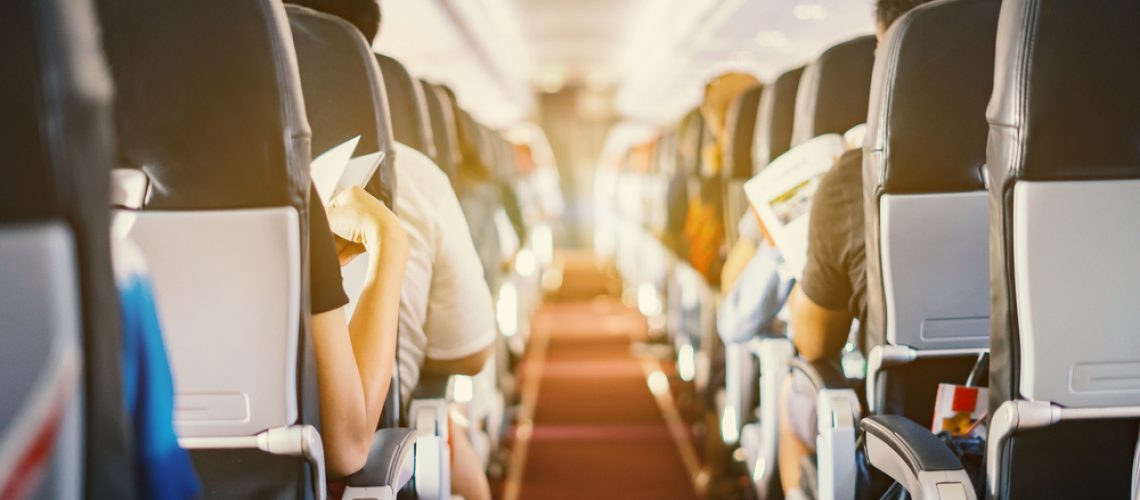After more than seven years of work on the issue, the European Committee on Standardization (CEN) has published a technical report including recommendations on how to prevent exposure to toxic fumes through improvements in the design, maintenance, and operation of aircraft.
FPU Romania together with other EU organizations and relevant bodies has been preoccupied with and involved in drafting a document that defines requirements and recommendations dealing with the quality of the air supplied to the cabin and flight deck of commercial aircraft. Exposure to contaminated bleed air (air supply from the engines or the auxiliary power unit “APU”) should not be regarded as a nuisance but as a serious risk to flight safety.
In June, FPU Romania, a member of ASRO – Romanian Standards Association, has been invited to the National Institute for Aerospace Research and Development “Elie Carafoli” in Bucharest, to present updates on the CEN cabin air quality project, addressing the concerns of our members, pilots, and flight attendants.
“We are pleased that Romania has been among the European member states endorsing this important project that will help improve aviation safety standards.”, said Mircea Constantin, FPU Romania’s Head of Representation.
The key to minimizing the impact of “fume events” when the air ventilation supply on commercial aircraft gets contaminated with noticeable amounts of heated engine oil and hydraulic fluid fumes is for the airline industry and the EU Aviation Safety Agency (EASA) to implement these new measures and cabin air safety standards.
The project calls for the implementation of training programs to enable airline workers to recognize, respond, and react to fume events onboard. Research shows that most contaminated air events go unreported leading to under-recognition of the scale of the problem, delayed maintenance action, and unnecessary risk to health and flight safety.
Read more Smells on a plane: Have you been exposed to toxic chemicals while flying?
We have recently been prompted by our members regarding a series of recurring fume events and a lack of adequate actions taken by the respective airline despite multiple written reports. In fact, some crew members complained of being pressured by the airline to fly on affected aircraft after reported fume events. In some unfortunate cases, the toxic fumes lead to crew incapacitation which is considered a serious flight safety event.
What can crew members do in such cases?
✔️ Report it via the EU mandatory occurrences portal.
✔️ Report it via the newly created GCAQE GCARS reporting system
✔️ Report it to your CAA/airline. Here for a Romanian-based crew.
✔️ Ensure that affected crew members report the event via the above links. Seek medical help as toxic fumes can have significant implications.
However, the technical report also emphasizes the need to install a suitable chemical sensor and filtration device that could notify maintenance workers and pilots of the type and location of contamination in the air supply systems. Commercial aircraft have no form of contaminated air detection system fitted and the bleed air is not filtered. Although accident investigation branches across the EU have repeatedly recognized the flight safety implications of fume events, the EU Aviation Safety Agency has not issued regulations on cabin air quality.
According to the joint press release following the publication of the report, the European Trade Union Confederation, the European Transport Workers’ Federation, the Global Cabin Air Quality Executive, and the European Cabin Crew Association call for the immediate implementation of the first European recommendations on cabin air quality on civil aircraft. National Standardization Bodies, including ASRO in Romania, approved the report’s publication by an average of 76% over the four ballots, which ended on September 29, 2022.
European Transport Federation Head of Aviation Eoin Coates said:
“This report finally gives EASA, manufacturers, MRO companies, and airlines a road map of design and maintenance measures to protect airline workers and passengers from breathing toxic oil fumes onboard.”
Yet, other groups have already recognized the need for these types of fume protection on aircraft. For example, in March 2022, the US Congress introduced the “Cabin Air Safety Act of 2022” which includes language to ensure that crews are educated on oil fumes, plus the use of sensor equipment and investigations into fume events.
“It is a major step forward and a really positive initiative for the whole industry to improve flight safety and protect the crew and public health,” said Captain Tristan Loraine, Global Cabin Air Quality Executive Spokesperson.






